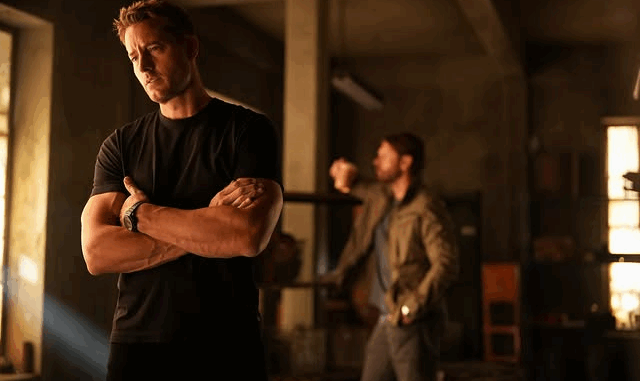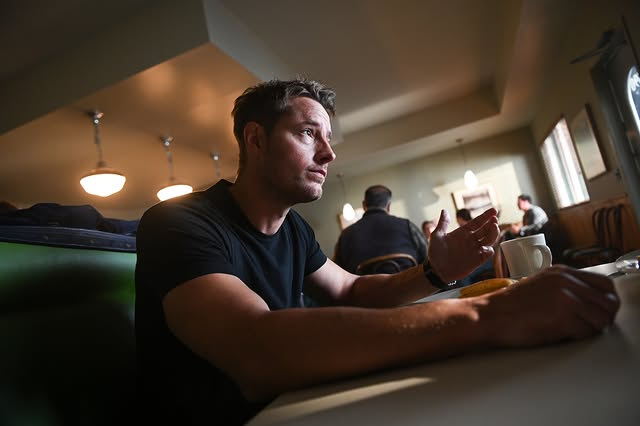
In the crowded landscape of television heroes, Tracker’s Colter Shaw stands apart. Played with quiet intensity by Justin Hartley, Colter isn’t a cop, a vigilante, or a conventional do-gooder. He’s a “reward seeker” — a man who finds missing people for money, but whose sense of right and wrong constantly clashes with his profession. That moral tension makes him one of TV’s most fascinating modern heroes.
A Hero Who Operates in the Gray
Unlike typical TV protagonists who wear clear moral labels, Colter lives in the gray. He doesn’t save people out of pure altruism, nor does he chase cash without conscience. Every decision he makes is filtered through a deeply personal code — one forged by trauma, independence, and a lifetime of learning not to trust easily.
“Colter’s not perfect,” Hartley said in an interview. “He makes choices that don’t always make sense to others, but they always make sense to him. He’s got his own compass — it just doesn’t point north for everyone else.”
That moral independence is what drives the show’s narrative — and keeps fans guessing where he’ll draw the line next.
The Roots of His Ethics
Colter’s ethics were born from chaos. Raised by a survivalist father who distrusted institutions and taught his children to live off the grid, Colter learned early that rules don’t always equal justice. That upbringing left him skeptical of authority but fiercely loyal to personal truth.
His missions — finding missing people, often at great personal risk — serve as a way to reconcile that upbringing. Each case becomes a test: Can he make things right without losing himself in the process?
The Emotional Cost of Doing the Right Thing
Being “the good guy” isn’t easy for Colter. His relentless pursuit of justice comes at a personal cost — loneliness, exhaustion, and a haunting sense that no matter how many people he saves, he can’t fix his own past.
Every episode forces him to confront a variation of the same dilemma: What’s right for one person might be wrong for another. That moral complexity gives Tracker its emotional depth. It’s not just about finding missing people — it’s about finding balance between empathy and survival.

His Relationship With Trust
Colter’s moral compass is guided by instinct but restrained by experience. He trusts his gut, not institutions. That’s why his relationships — particularly with Billie Matalon (Morena Baccarin) — are so layered.
Billie often challenges Colter’s methods, pushing him to examine whether “doing the right thing” is the same as “doing it his way.” Their friction creates one of the most emotionally grounded dynamics on TV — a constant tug-of-war between logic and conscience.
The Lone Wolf Who Still Cares
Colter often operates alone, but solitude doesn’t make him cold. If anything, it sharpens his empathy. His independence allows him to connect with victims and suspects alike — people who, like him, live in the gray.
He’s the kind of hero who listens first, acts second, and carries every mistake with him. That quiet sense of accountability makes him human — flawed, conflicted, but deeply compelling.
Why Audiences Relate to Him
Viewers connect with Colter not because he’s perfect, but because he isn’t. In a world of black-and-white morality, he reflects how real people make hard choices. His compassion doesn’t erase his pragmatism; his principles don’t shield him from pain.
He’s the embodiment of modern heroism — not defined by power or purity, but by persistence in doing what feels right, even when it hurts.
Colter’s Moral Compass: The Heart of Tracker
At its core, Tracker isn’t just about chasing clues — it’s about chasing truth. And Colter’s moral compass is what gives the show its pulse. His choices remind us that integrity isn’t about never breaking the rules; it’s about knowing why you bend them.
That’s what makes him TV’s most complex hero — a man who walks alone, guided not by glory or gratitude, but by a deep, unshakable belief that doing good is worth the cost.
Final Thought
Colter Shaw’s heroism isn’t loud or flashy. It’s quiet, raw, and human. He doesn’t save the world — he saves people, one at a time, often at the expense of his own peace.
And in an era of antiheroes and cynicism, that makes him something rare: a man who still believes in right and wrong, even when the world doesn’t.
